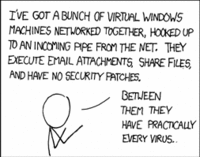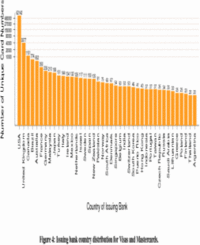 Certain ISPs plan to spend a lot of money
throttling,
stifling,
policing copyrights,
campaigning and lobbying
to control content of information flow through their networks.
They might want to look at what’s happening in China:
Certain ISPs plan to spend a lot of money
throttling,
stifling,
policing copyrights,
campaigning and lobbying
to control content of information flow through their networks.
They might want to look at what’s happening in China:
Beijing has recently added a new weapon to its arsenal of surveillance technologies, a system it believes to be a modern marvel: the Golden Shield. It took eight years and $700 million to build, and its mission is to “purify” the Internet — an apparently urgent task. “Whether we can cope with the Internet is a matter that affects the development of socialist culture, the security of information, and the stability of the state,” President Hu Jintao said in January.And if they don’t know how, that article provides tips. Continue readingThe Golden Shield — the latest addition to what is widely referred to as the Great Firewall of China — was supposed to monitor, filter, and block sensitive online content. But only a year after completion, it already looks doomed to fail. True, surveillance remains widespread, and outspoken dissidents are punished harshly. But my experience as a correspondent in China for seven years suggests that the country’s stranglehold on the communications of its citizens is slipping: Bloggers and other Web sources are rapidly supplanting Communist-controlled news outlets. Cyberprotests have managed to bring about an important constitutional change. And ordinary Chinese citizens can circumvent the Great Firewall and evade other forms of police observation with surprising ease. If they know how.
— The Great Firewall: China’s Misguided — and Futile — Attempt to Control What Happens Online, By Oliver August, WIRED MAGAZINE: ISSUE 15.11, 10.23.07 | 12:00 AM




